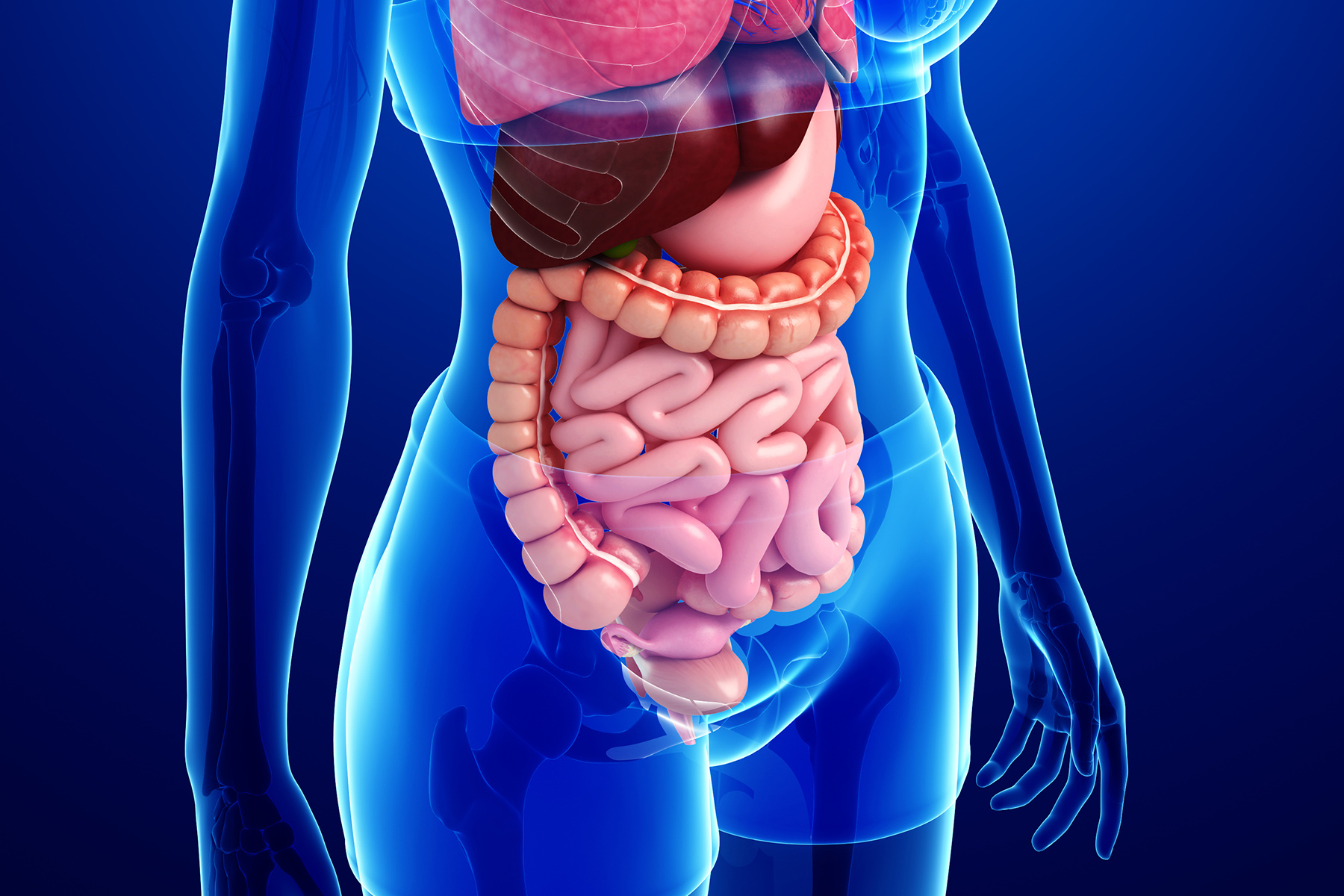How Your Gastrointestinal System Influences Your Hormones
Gut Microbiome
The gut microbiome (formerly called gut flora) is the name given today to the microbe population living in our intestines. Our gut microbiome contains tens of trillions of microorganisms, including at least 1000 different species of known bacteria with more than 3 million genes (150 times more than human genes). The gut microbiome can weigh approximately 4.5-5 pounds. One third of our gut microbiome is common to most people, while two thirds are specific to each one of us. In other words, the microbiome in your intestine is like a finger print.
Today, the microbiome is considered an endocrine organ, some consider it even more powerful than the other endocrine glands – it controls the production of hormones and regulates hormonal balance.
Female Hormones and the Gut
Estrogen and progesterone are produced in the gut microbiome as well as in the adrenal glands and ovaries. Who would have thought that the hormones that regulate your menstrual cycle are influenced by your gut?
So the gut microbiome can produce progesterone and estrogen itself, as well as stimulate the reproductive organs and adrenal glands to do the same. The gut bacteria produces all three estrogens (esterone, estradiol, and estriol), promotes the levels of estriol (aka E3, the protective estrogen) and helps with reducing symptoms of menopause and osteoporosis.
Ester What? Estrobolome
The gut microbiomealso has a specific set of genes called the estrobolome which code for enzymes that are capable of metabolising harmful estrogens within the human intestine. (These estrogens are the main cause of breast cancers, breast lumps, etc.). Simply put, the estrobolome of the gut works in conjunction with the liver and governs the levels of estrogen in our body.
Diet and lifestyle factors that are commonly known to disrupt the gut microbiome also have the potential to disrupt the estrobolome. Antibiotics and hormonal contraceptives have been found to alter both the gut microbiota and estrobolome. Endocrine disruptors found in our food, cosmetics, pesticides, detergents, and plastic containers… have been found to significantly impact the gut microbiota and increase the risk of estrogen-related diseases.The estrobolome may be the key factor determining the mediation of endocrine disruptors.
So what happens for example, if the estrobolome and liver don’t do their job and get rid of the excess estrogen? Well, as we have discussed in prior articles, it is possible to have symptoms of estrogen dominance. Endometriosis for example, is an estrogen mediated condition characterized by the growth of endometrial tissue outside the uterus that can develop due to excess levels of estrogen. Therefore, an imbalance in the estrobolome causing estrogen dominance can lead to all kinds of women’s hormonal challenges from PMS, to PCOS, infertility, mood swings and bloating, as well as may lead to a higher risk of breast cancer and ovarian cancer.
Dysbiosis
Dysbiosis is an imbalance in the healthy organisms that inhabit the intestinal tract/microbiota.Dysbiosis negatively effects your estrobolome. Dysbiosis can be caused by parasitic infections, bacterial overgrowth, or invasive yeast infections. Hidden or subclinical inflammatory conditions can also interfere with digestion and cause dysbiosis.
Dysbyosis can be caused by inflammatory foods we eat. Gluten and dairyare prime examples of this. Food sensitivities are a common cause of hidden inflammation in the gastrointestinal tract. For example, some people are sensitive to grains containing gluten such as wheat, barley and rye. Others react to lactose and/or casein found in milk and dairy products. Many other people react to soy. These types of hidden food reactions are not just because of the actual food, but because of how they were grown. GMO goods are commonly saturated with glyphosate (active ingredient found in “Round Up”). This destroys the good bacteria in your gut similar to antibiotics.
Dysbisosis has been linked with important human diseases, including autoimmune and/or auto inflammatory disorders, such as IBD, metabolic disorders, such as, obesity, type 2 diabetes, allergies, and neurological disorders….in addition to the hormonal conditions mentioned above.
Antibiotic use causes dysbiosis. Evidence is accumulating that a healthy microbiome does not recover completely from antibiotics or are replaced in the long term by resistant organisms. Overuse of antibiotics could be fueling the dramatic increase in conditions such as obesity, type 1 diabetes, inflammatory bowel disease, allergies and asthma, which have more than doubled.
What you need to do for your gut and hormones
Dysbiosis is a single or number of events leading to inflammation and subsequent alteration of your normal microbiome, which we learned today can affect your female hormones. Abnormal shifts in your gut flora occur caused by the use of antibiotics, illness, stress, poor dietary habits (sugar, gluten, dairy, soy, processed foods, and eating other foods you may be sensitive to), and other lifestyle factors.
Things To Do:
– Get adequate sleep
– Exercise frequently
– Eat a wide variety of fresh plant foods
– Consume probiotics and fermented foods
– Consume prebiotic fibers: pectin, inulin, fructo-oligosaccharides, hydrolyzed guar, larch arabinogalactan, gum arabic, beta glucans, boabab, chicory root, asparagus, dandelion greens, garlic, onions, leeks, wheat bran, or bananas.
Things To Avoid:
– Refined carbohydrates
– NSAIDs
– Stress
– Alcohol
– Antibiotics
– GMO foods sprayed with glyphosate
In this article we found that the gut microbiome plays a central role in the regulation of estrogen and progesterone levels within the body, in turn influencing the risk of developing estrogen-related diseases such as endometriosis, polycystic ovary syndrome, and breast cancer, as well as symptoms associated with abnormal estrogen levels. Unmistakably, there is a connection between gut microbes and female hormone levels and why correcting dysbiosis helps the estrobolome properly do its job balancing hormones to keep you healthy.
If you feel you have a hormonal imbalances or dysbiosis, schedule an appointment today to see what testing can be done to identify the root cause, correct the problem and get you feeling like yourself again!

